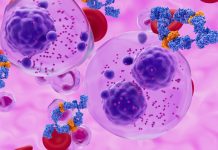Here, CBDepot discuss how they worked with the European Commission to achieve a “valid” Novel Food Application
Currently, CBDepot hold the only “valid” Novel Food Application for synthetic CBD in the EU, which is a monumental breakthrough in the fight against discrimination against source of product.
This journey toward recognition of a synthetic Cannabidiol (CBD) was in motion long before March 23rd. But March 23rd is the day that the European Food Safety Authority finished the suitability check on CBDepot’s application for authorization of the pure form of Cannabidiol as a novel food ingredient. The substance is isomerically and stereo-chemically identical to pure plant derived CBD, using the species Cannabis sativa L.
Proceeding this triumph for synthesised chemicals, on March 31st, the European Commission gave their mandate to the European Food Safety Authority (EFSA) to carry out a Risk Assessment on CBDepots’ Dossier NF 2019/1371. Consequentially, this company is currently the only one globally that has a “Valid” Novel Food Application, creating interesting and hopeful implications towards the future of the UK market.
The regulation history behind this CBD achievement
On November 27th, 2019, EFSA announced that CBDepots’ application for trans-Cannabidiol synthesized as a Novel Food ingredient was acknowledged in the Register of Questions, with the reference EFSA-Q-2019-00750. CBDepot’s dossier NF 2019/1371 was initially filed on October 24th, 2019.
The first application for hemp-derived Cannabidiol as a Novel Food was filed in 2016, via the Czech Ministry of Agriculture. This was re-filed in early 2018 via the EU electronic system. During this time, the group of companies supporting CBDepot covered both versions of Cannabidiol for approval as an authorised Novel Food ingredient, to be used in food supplements.
Cannabis Pharma, one of the mother companies of CBDepot, filed the application on isolated Cannabidiol which arrived at a major milestone on July 10th, 2019, when EFSA declared the dossier (NF 2018/0349) to be suitable. Despite this progress, the EU Commission had not declared the same dossier as valid and ready for an EFSA Risk Assessment.
Whilst this is a momentary setback, it must be appropriately analyzed. When CBDepot looked into this stasis, they drew the conclusion that this is similar to what the European hemp industry is going through, – particularly in the cosmetics sector since March 2019. The guidelines state that “synthetically produced” Cannabidiol is allowed for cosmetic use, without any specific restrictions, while Cannabidiol “derived from extract or tincture or resin of Cannabis” still has a “306” restriction in the Cosmetic Ingredient (Cosing) database. Restriction “306” refers to Schedules I and II of 1961 Single Convention on Narcotic Drugs as per Annex II of REGULATION (EC) No 1223/2009 on cosmetic products.
Does the chemical substance source truly matter?
Whilst the extraction of Cannabidiol from a natural source has been the known normal as CBD became a flourishing industry in the EU, synthesis is also a viable manufacturing method.
With chemical synthetic CBD, the purity is unquestionable, and the financial requirements decrease with batch size, creating a consistent product at a fair price.
However, the world remains wary of synthetic chemicals, which is why CBDepot hopes to change perspectives with the work it is undertaking to create valuable Novel Food applications.
CBDepot believes the source of chemical substance does not matter in its assessment of legality, provided it was manufactured according to legal requirements in the country of origin. Still, by filling application for authorization on synthesized Cannabidiol, CBDepot hopes to combat any remaining legal prejudices on this molecule, which focus narrow-mindedly on the source.
*Please note: This is a commercial profile











